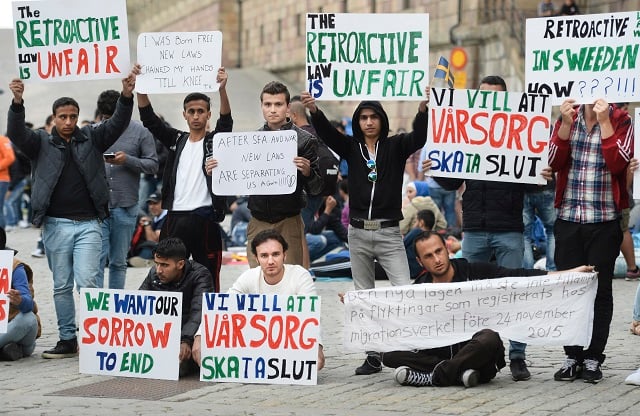Sweden needs to “move beyond emergency mode” in its treatment of asylum seekers, said Nils Muižnieks, the Council's Commissioner for Human Rights, at the end of a five-day visit to Sweden.
The commissioner praised Sweden for its “leading role” in assisting asylum seekers and refugees and its efforts in countering terrorism and extremist violence, but warned that the country must now adjust its attitude to asylum regulations now that the number of asylum requests is declining.
After a record high of 163,000 asylum seekers arriving in 2015, the Swedish government passed a temporary asylum law which placed limits on family reunifications and only granted temporary residence permits to persons who have been granted refugee status.
But Muižnieks said the emergency measures could present obstacles to integration, and warned that it was “particularly urgent” to update the regulations over family reunifications.
What's more, he said it was necessary for Swedish authorities to “ensure that rejected asylum seekers, who cannot be returned and are at risk of destitution, are treated in a manner that is both humane and human rights compliant so that their basic needs, including shelter, clothes and food, are met”.
During his visit, on which he will write a more detailed report, the commissioner met members of local authorities as well as refugees, including Afghan refugees in Stockholm who arrived as unaccompanied minors.
Muižnieks said that authorities should always treat the best interests of the child as the top priority in all cases, and that in those cases where there were doubts over whether unaccompanied minors were really underage, they should be “given the benefit of the doubt”.
“These cases should be prioritized to avoid long waiting periods, which contribute to psychological distress; as arrivals have slowed considerably, the authorities should strengthen the support provided to these young people,” he added.
READ ALSO: 24 hours on Stockholm's streets with Afghan refugee protesters


 Please whitelist us to continue reading.
Please whitelist us to continue reading.